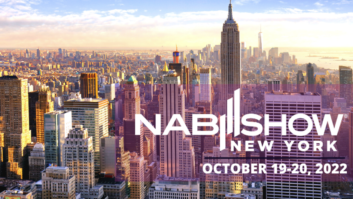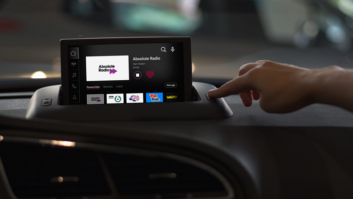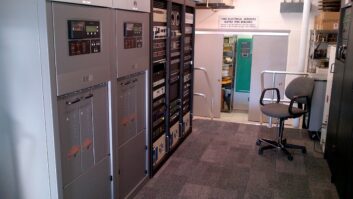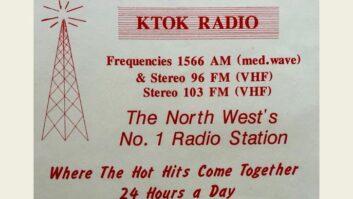PONTECCHIO MARCONI, Italy — The first time I saw Guglielmo Marconi’s childhood home, I felt as if I was entering hallowed ground.
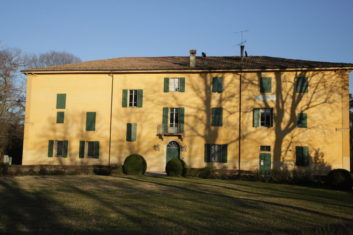
After 30 minutes of driving from central Bologna, located in the Emilia-Romagna region northern Italy, the roads became smaller and the landscape of farms lined with pencil-shaped Cypress trees opened up. We were presented with a lush, rolling countryside accentuated with picturesque Italian villas, some of which are hundreds of years old.
Then we made a hard left turn off the small road in the village of Pontecchio Marconi, and carefully drove toward
Guglielmo Marconi’s house on an old bumpy road. Driving down the long driveway, we saw rising before us a magnificent buttery yellow house, with three floors, 17 front-facing windows and a circular driveway in front of its heavy, green doors.
MAKING HISTORY
These are the same doors that a young Marconi would have used thousands of times as a child growing up in his father Giuseppe’s house. The huge house, called “Villa Griffone,” is a remarkable place in its own right, but what has secured its place in history and as a national Italian monument is the fact that it was in this house that radio as we know it was invented. The successful experiments that young Marconi conducted, remarkably without having received a college degree or much formal education, would reverberate around the world and forever change wireless communications history.
I was here with a small team from William Paterson University, where I am professor and chair of the communication department, to create a moment, albeit small, of radio history. Our radio station, WPSC — Brave New Radio, was here to broadcast a live, three-hour show on World Radio Day (Feb. 13), as well as to launch a brand-new radio station called Outside Radio.
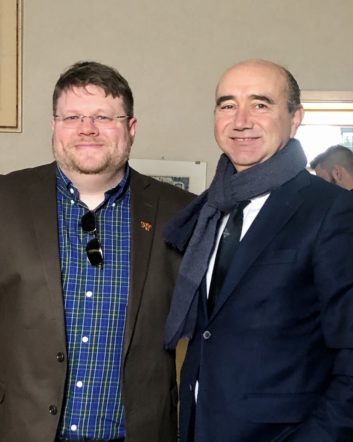
To make the event even more remarkable was the fact that it was also happening in the 125th anniversary year of Marconi’s first successful wireless transmissions from that very house in 1895. We would be broadcasting to the world in the very place that radio technology was invented. We would also be launching a radio station that we had somehow had a hand in inspiring from our own studios back at William Paterson University, New Jersey.
Back in August 2019, Giovanni Lenzi, an Italian student visiting us from Bologna, experienced two weeks at our radio station, Brave New Radio. That experience, as part of our Summer Youth program, proved to be a remarkable one. Under the guidance and training of one of our students at the station, Bridget Charlton, Giovanni was able to take to the mic at the end of the two weeks and have his own radio show.
Giovanni is autistic, and his ability to communicate so fluently and passionately on the radio astonished his family and friends. It was as if sitting in front of a microphone unlocked his ability to communicate. The radio station literally helped him to find his own voice.
Deeply moved by this event, Giovanni’s father, Alberto, was inspired to create Outside Radio in Italy for his son, and others like him, who could present radio programming from their point of view and find inclusion for those who may struggle with special needs. It was a radio station for outsiders to create programming not heard anywhere else.
COINCIDENCE
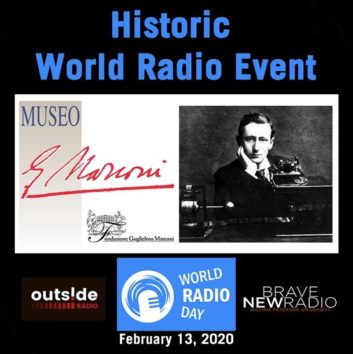
Shortly after Giovanni’s summer experience, Alberto flew over to see our radio station for himself. As he was about to leave, we passed our trophy cabinet, and I pointed out our Marconi Radio Award that the National Association of Broadcasters had awarded us in 2018 for Non-Commercial Radio Station of the Year. It’s an award that is considered the highest accolade possible in the radio industry, and we are very proud of it. Alberto responded with delight, “Wow! Did you know Marconi was born in the city where I live? Bologna.”
That seemed like an unbelievable coincidence. I suggested an idea: What if we could help launch his new radio station at the Marconi house and also coincide the launch to celebrate World Radio Day 2020? He enthusiastically agreed to contact the Marconi Foundation and propose the idea.
Soon after, we were thrilled to hear that the Marconi Foundation embraced the idea, as it was also the 125th anniversary of Marconi’s first successful wireless radio transmissions. It all seemed to come together in one, now potentially historic, event.
I contacted UNESCO, the organizers of World Radio Day, next. Alex Da Silva, at UNESCO’s department of Media Development and Society, responded positively and shared that UNESCO “want to highlight your initiative of a radio run by students with autism.” It seemed that our proposal resonated with their theme for WRD2020, which was “We Are Diversity Radio.”
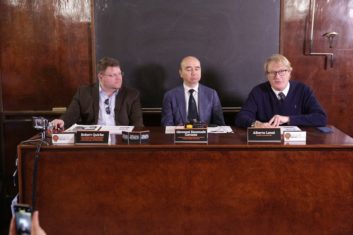
The project seemed absolutely compatible with this theme, as Outside Radio was giving a voice to those perhaps marginalized in society because of their special needs, and giving them an important outlet for their views and opinions.
SETTING THE STAGE
At 2 p.m. on Wednesday, Feb. 12, the day before the main broadcast, I took part in a press conference at the University of Bologna, along with Alberto Lenzi, Giovanni’s father and founder of Outside Radio, and the President of the Marconi Foundation, Professor Giovanni Emanuele Corazza. The University of Bologna is the world’s oldest university, founded in 1088, and home of over 85,000 students, who busily pass through the ancient corridors and lecture rooms.
I must be honest and admit that in the press conference I did not understand anything that the other two gentlemen were saying to the cameras, but a translation of Italian was not necessary when Alberto was very emotional talking about how his son Giovanni had found his voice on Brave New Radio and now was launching his own radio station. The next day we were on the Italian TV news as well as in several newspapers and websites.
The adrenaline of being at that press conference got my heart pumping but the next day, we found ourselves setting up our remote radio studio in a room full of Marconi’s wireless inventions and a life-size photo of Marconi, who seemed to be overlooking our efforts to make this broadcast happen. The combination of excitement, nerves, and adrenaline added urgency to our preparations, and it felt surreal that this was actually going to happen. We would go live at 2 p.m.
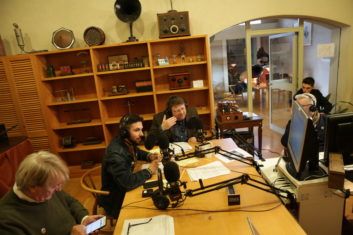
Villa Griffone is the site of the Marconi Museum, dedicated to the origins and development of radio communications. After Marconi died in 1937, the villa also became the home of the Marconi Foundation, set up in 1938, to keep alive the memory of the great inventor and to continue his work promoting innovation and creativity.
The foundation is closely tied to the University of Bologna. Its president, Giovanni Corazza, is also a professor at the university. We all felt honored by his participation in our broadcast.
INTERNATIONAL PARTICIPATION
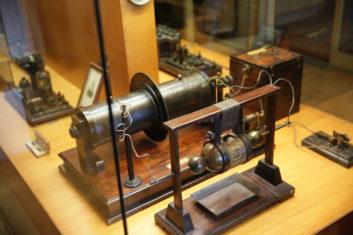
Now we were about to go live from the center of a room, which had Marconi’s inventions literally surrounding us in display cabinets and on the walls. The air was thick with history and that only put pressure on us to make sure our broadcast would be successful.
Precisely at 2 p.m. local time in Bologna (8 a.m. in New Jersey), our mics went live and our broadcast began. Much that happened in the three hours we were on the air, and those that regularly broadcast on the radio know that it feels like time goes by very quickly when you are on air. This broadcast was no exception.
Some highlights of our broadcast included greetings from all around the world, such as Hong Kong, Finland, Sweden, United Kingdom, the United States, Ireland, Oman, Spain, Italy, and other countries, all recorded specifically for our program.
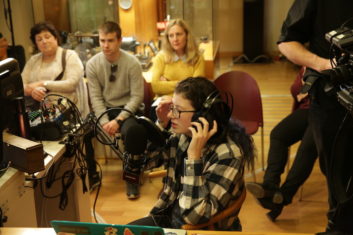
I was also deeply proud of our communication student from William Paterson University, Alyssa Robbins, who interviewed the Marconi Foundation’s president live and asked him some great questions. My co-host was Brave New Radio Station Manager, Sebastian Escobar, who also did a brilliant interview with Barbara Valotti, the director of the Marconi Museum. She’s an expert on Marconi’s early years, and she gave some fascinating insights into the mind of a young Marconi in 1895.
In the second hour we officially launched Outside Radio, and we presented the team of eight students with an engraved trophy from the Brave New Radio team, congratulating them on launching their station. They were clearly delighted and surprised by the gesture.
GREAT CONTENT
The Outside Radio team had recorded some great content, which we played on the air, including an interview with Marconi’s surviving daughter Elettra Marconi, who gave extraordinary insight into how she experienced her father’s legacy firsthand. They also produced and played the “Impossible Interview with Guglielmo Marconi,” a piece that imagined an interview with Marconi if he were alive today, and his thoughts about how far we’ve come with the technologies he invented.
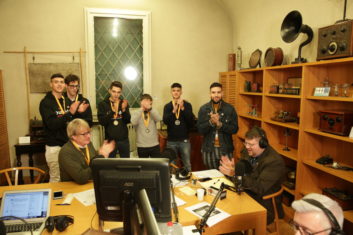
I was also pleased with my interview with Mirta Lourenço, chief of Media Development and Society at UNESCO. She was thrilled with our launch and congratulated the team on the event and the launch of Outside Radio. It felt that our efforts had been legitimated by our recognition from UNESCO and Mirta’s kind words to us: “Congratulations! What a nice story! … How important it is that these students will be able to access and express themselves and have their own radio station. I think Marconi would be proud!”
Similarly enthused, Alberto Lenzi was both moved and moving in his words, which paid tribute to his son Giovanni and the journey that Outside Radio was now embarking upon.
Then, just before the very end of the broadcast, we surprised everyone and presented them with specially engraved medals that recognized the historic event and also the launch of Outside Radio.
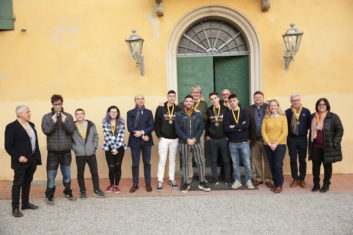
When we finally closed the mics at 5 p.m. We knew that all had gone smoothly and we had accomplished something special and memorable. In the birthplace of radio itself, a new radio station had been launched. We had paid tribute to Marconi and his enduring legacy, and radio stations around the world had taken the livestream on their own airwaves and contributed material to the broadcast.
MORSE CODE
It’s hard to know for sure how many countries participated, but we estimate at least 12 countries and more than 50 radio stations were a part of this historic broadcast. We were able to use the World College Radio Day network of stations that I had co-founded to share the news of our broadcast and encourage their participation in the event.
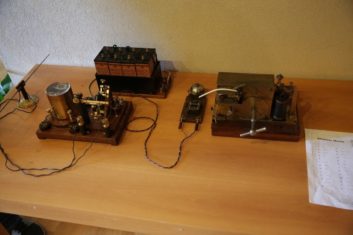
As we packed away the last of the microphones and rolled up all the cables, I noticed something left on the table that we had used to broadcast from. It was something that had been given to us just before the broadcast began: A very thin strip of paper that could have easily been mistaken for trash and been thrown away.
The thin strip of paper had a series of dots and dashes on it, with letters written under each series of them, denoting their corresponding Morse code letter. It read “Brave New Radio.” Just before we went on the air, one of the tour guides had set up Marconi’s equipment, the same as he had in 1895, and had tapped out our radio station name wirelessly, which then came out on a paper feed from a Morse printer next to it. We all watched with amazement, as likely those 125 years before us also had. I now held the tiny strip of paper in my hand and marveled at how something so small had been, in fact, so revolutionary. It had changed the world. Now, isn’t that something?
Dr. Rob Quicke is professor of Communication, Chairperson of William Paterson University’s Communication Department, and general manager of WPSC Brave New Radio. Dr. Quicke would like to thank Alberto Lenzi and the Outside Radio team for their kind hosting of the team for this event. We thank the live producer of the radio program, Carlo Magistretti. Dr. Quicke would also like to thank the Marconi Museum and the Marconi Foundation for their kind support and participation of this broadcast event. Thanks also to UNESCO for participating and promoting the event to its global network of participating media. Finally, thanks to William Paterson University for making it possible for the team from Brave New Radio to travel to Italy and participate in this historic radio event.
